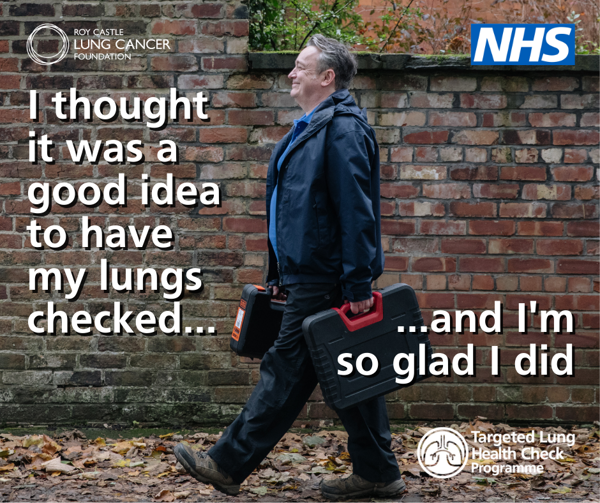Lung Cancer Screening
Last Updated: Friday, 12 September 2025
What is Lung Cancer Screening?
NHS Lung Cancer Screening (LCS), formerly known as Targeted Lung Health Checks, is rolling out across the country, giving people the opportunity to have their lung health checked and have treatment early if any problems are found. Most people will have no problems, but it is best to get checked out.
Lung Cancer Screening is one of the NHS cancer screening programmes and research has identified that people aged 55-74 who have smoked, or who smoked in the past, are at increased risk of lung cancer.
Our programme invites these people for a health assessment over the phone and, if appropriate, a chest CT scan which will take place in a mobile unit within your community.
The programme started in 2019 after a study showed that this screening reduced the number of people dying of lung cancer by 26% in men and between 39% and 61% in women.
Why is Lung Cancer Screening needed?
The NHS is working hard to increase the number of people who survive cancer by finding it earlier, when it is easier to treat and outcomes are more successful.
Lung cancer has often been diagnosed at a late stage because symptoms are not always noticed until the disease has become worse. Lung Cancer Screening is successful in finding cancer in its first stages, when people are much more likely to be cured by treatment.
Cheshire and Merseyside has led the way in rolling out this screening – which was known as Targeted Lung Health Checks – and they have already taken place in areas where lung cancer is more common: Liverpool, Knowsley, Halton, St Helens and south Sefton.
They are now in Wirral and Warrington and north Sefton will follow before the rest of Cheshire. Eventually, they will have taken place in all areas of Cheshire and Merseyside.
More than 500 lung cancers have been diagnosed by these checks – with the majority of people being totally cured of their disease.
For further information about the Lung Cancer Screening Programme, please click here.